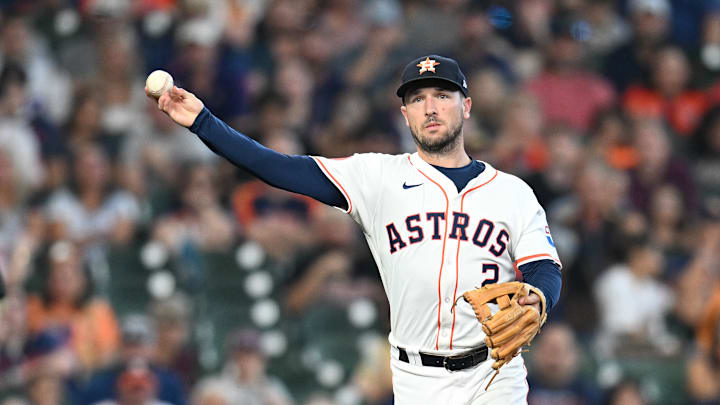The Houston Astros came roaring back to life after a horrendous start in 2024, doing just enough to win their seventh AL West crown in the last eight years. But, thanks to that early-season hole, they won just 88 games - their lowest single-season total (excluding the shortened 2020 campaign) of the era, and were promptly bounced in the Wild Card Round by the Detroit Tigers.
This October marked the first time since 2016 the American League Championship Series didn't feature Houston - a testament to the run they've been on for the better part of a decade. But that window is rapidly closing, if not already shut, and GM Dana Brown is doing everything in his power to pry it open a little bit longer.
With the Winter Meetings kicking off next week in Dallas, a critical stretch of the offseason looms and, if they don't get it right, the Astros could be in a difficult spot for several years to come. Can they bring back a fan favorite? How can they breathe life into the farm system? Questions abound. Let's get started.
3 long-term mistakes Astros can make this December
3. Overextend themselves in years and/or dollars to keep Alex Bregman
Alex Bregman has been a staple in Houston for nine seasons, helping the Astros win two World Series rings and picking up a Silver Slugger, a Gold Glove and a pair of All-Star selections along the way. He, along with Jose Altuve, are the unquestioned faces of the franchise.
Heading into his age-31 season, Bregman is a free agent for the first time in his career and once the Juan Soto sweepstakes concludes, the full scope of his market should start to take shape. Brown has repeatedly stressed the importance of retaining Bregman, calling re-signing his third baseman the team's 'biggest priority'.
With Kyle Tucker, Framber Valdez and Ryan Pressly all set to hit the open market in a year's time, the once star-studded Astros roster could soon be a shell of what it once was. Losing Bregman this winter and Tucker next would be a major blow to a team that hasn't posted a losing record since 2014 (again, excluding 2020).
A lack of star power is a real thing - and Houston could be in that position without those guys, forced to rely heavily on Altuve in the back half of his 30s, along with slugger Yordan Alvarez. But how far should Brown be willing to go to bring Bregman back? It probably comes down to picking between Tucker and Bregman - but even if the choice is the latter, there are legitimate concerns about what the next decade will look like for the former LSU standout.
In his walk year, Bregman's eye wasn't nearly what it had been prior, with a walk rate that was cut in half and actually fell below league average. His chase, whiff and K rates were all elite - but there were some chinks in the armor. He looked like he was towing an anchor when running (and the metrics bore that out - he ranked in the bottom third of the league in sprint speed). To his credit, though, he was a strong defender, winning the first Gold Glove of his career for his work at the hot corner.
Reports suggest Houston is comfortable with a contract that falls somewhere in the six-year, $156 million range (which would edge out Matt Chapman's six-year, $156 million extension signed with the Giants). His role in the clubhouse and on the field are immeasurable to the Astros, but they've got a ways to go to bridge the rumored gap in Bregman's asking price: a deal worth north of $200 million.
For a team facing a payroll crunch and already looking at ways to move money around to round out the roster, finding an extra $50 million is no small matter. Regardless of how badly they want Bregman back in that clubhouse, though, pushing too far past six years or going north of $200 million has the potential to be a deal that handcuffs the team down the road.
